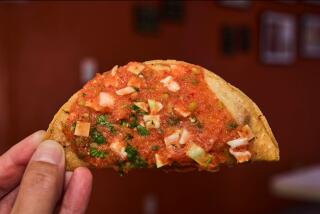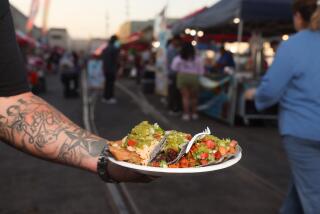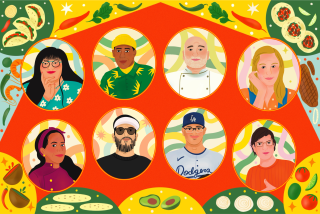‘Trade Dress’
- Share via
The issue of concept copying raised in David G. Savage’s April 21 law perspective, “Feel You’ve Eaten Here Before? It’s Deja Vu or a Copycat Suit,” missed the boat. The case of Two Pesos vs. Taco Cabana revolves around a restaurant’s “trade dress,” i.e., its appearance to customers. The question here is, was the restaurant’s interior so unique that the public could recognize the restaurant’s interior as particular to Taco Cabana, or just any Mexican restaurant? In other words, is Taco Cabana’s “trade dress” distinctive by itself, or does it require proof of extensive advertising?
Courts have held that the “trade dress” of a product or business is protectable if, over time, the public has come to recognize it as unique to one company. The shape of the old-fashioned Coca-Cola bottle is a famous example of the “trade dress” question.
Protection of a unique “trade dress” can be important, indeed even crucial, to a business.
The Supreme Court will probably decide whether the public can recognize a restaurant’s “trade dress” right out of the box, without proof of any extensive advertising associated with it (like the Coca-Cola bottle). But in any event “trade dress,” on its own, does not inhibit competition. Take the Coca-Cola bottle: Protecting the shape of that bottle does not inhibit competition because anyone can use any other shape.
M. JOHN CARSON, Attorney
Los Angeles
More to Read
Eat your way across L.A.
Get our weekly Tasting Notes newsletter for reviews, news and more.
You may occasionally receive promotional content from the Los Angeles Times.








